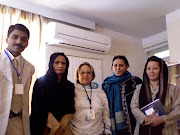The interim government in Bangladesh has hit another landmark, arresting one of the country's most charismatic politicians, former Prime Minister Khaleda Zia. This arrest brings to an end weeks of speculation about the government's intentions. There were clear signs that the government was preparing to jail Ms Zia, with investigations into financial dealings during her last term in office.
But speculation was also rife that the government wanted to do a deal with her - particularly after she was allowed to clear outstanding income taxes dating back years, rather than face charges for tax evasion.
The Anti-Corruption Commission's decision to bite the bullet and file a specific charge triggered diverse reactions. This has been done to harass her politically, to prevent her from carrying out her political functions. It was no secret that the government was preparing to act against her. In fact, many were asking why Khaleda Zia had not been arrested yet.
The government is presenting the arrest as a clear demonstration that the drive against corruption is transparent and neutral. For her part, Ms Zia believes the charges and arrests are designed to "destroy" her family and remove them from Bangladesh's political scene. She was arrested along with her younger son Arafat. Her elder son Tarique is already in jail facing corruption charges. There is little doubt that the military-led government wants to see an end to the Zia family's domination of Bangladesh politics.
Ms Zia has led her Bangladesh Nationalist Party - or - BNP unchallenged for nearly 25 years. Tarique emerged as heir apparent after the party's stunning electoral triumph in 2001. Tarique's rapid rise to become the most powerful man in the country - with tales of rampant corruption associated with his band of cronies - alienated many inside the party. Other sections of society were also angered by what they saw as a brazen attempt to install and perpetuate a dynasty.
The government has not made any secret of its desire to force the two largest political parties, the BNP and its main rival the Awami League, to carry out extensive internal reforms. The central plank of this reform process is the so-called "minus-two solution" - the BNP without the Zia family, and the Awami League without its iconic leader Sheikh Hasina. The first, ill-conceived efforts to get rid of the two women failed miserably last May, when both Sheikh Hasina and Khaleda Zia successfully fought off clumsy attempts by the government to send them into exile. Now the government seems back on course, pursuing the same agenda.
Ms Hasina was put in jail in July and charged in a series of extortion and corruption cases. Now with Ms Zia in jail, the government's confidence level is likely to reach a new high. That confidence reached rock bottom towards the end of August, when students at Dhaka University were joined by thousands of others in three days of street demonstrations. The violent protests and clashes with police and army led the government to impose a curfew and arrest university teachers. There were allegations of widespread assaults on students and torture of people in custody.
The only thing which remains to be seen is how independently and fairly the special corruption courts are allowed to function. This has been one of the major factors in eroding public support for the government over the past few months.
The big question in Bangladesh now is - what kind of future does the government have in mind?
Sunday, September 09, 2007
Subscribe to:
Post Comments (Atom)












No comments:
Post a Comment